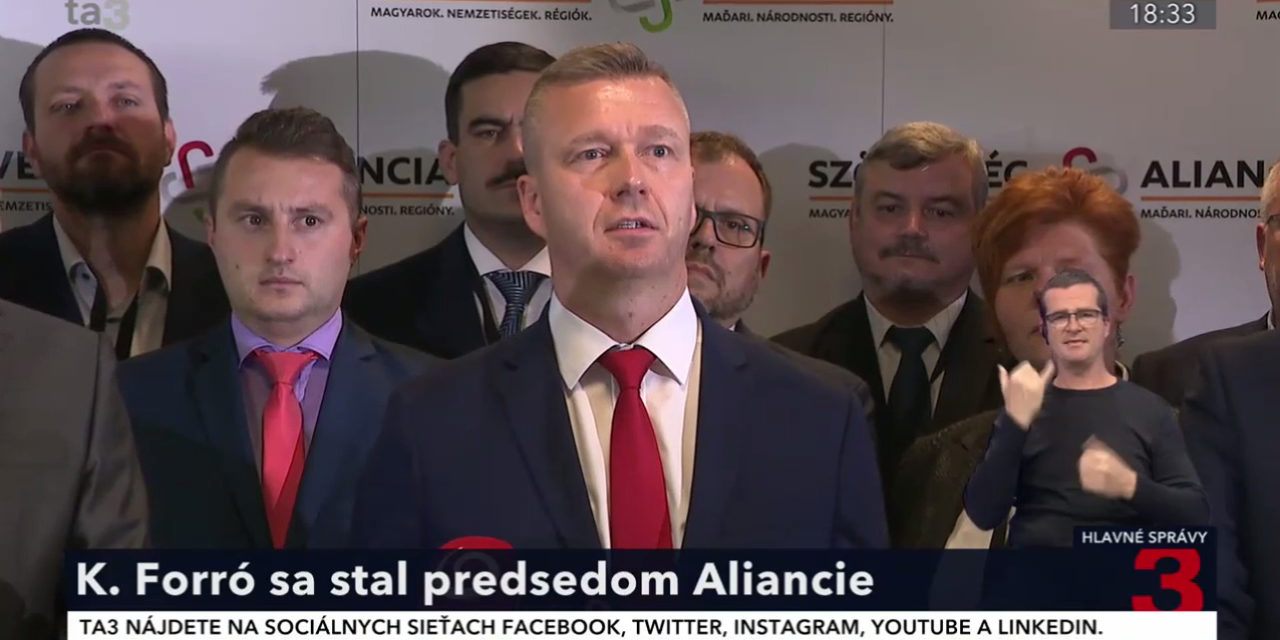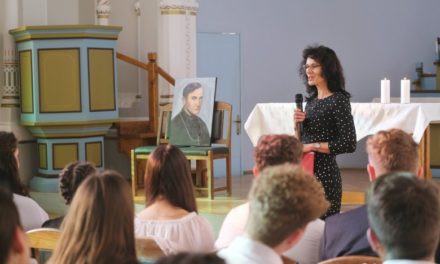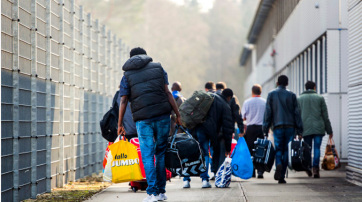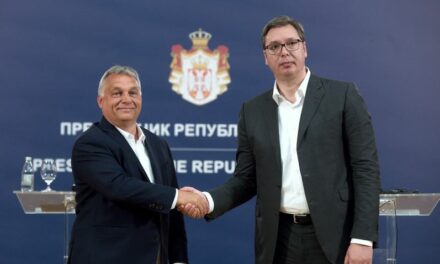Those who followed the conversation between Krisztián Forró, the president of the newly formed Hungarian political party unification association and the host, Peter Bielik, who took part in the topic of the day program on Slovak TA3 television, were able to take part in an interesting and instructive conversation. They were able to get an idea not only about the goals of the new party formation, but also about how a Slovak intellectual thinks about Hungarians. We quote some details of the conversation.
...The goals of the three united parties were formulated by Forró as primarily representing the Hungarians and other nationalities living in the country, as well as the region (Southern and Eastern Slovakia) - reflecting on the problems of the people living here and looking for solutions to them. "Of course, we are aware that it is difficult outside of parliament, so our task is to get the Association into the legislature so that our community can hear its voice," he said...
...When asked how they intend to remove Beneš's decrees from the Slovak legal system, Forró said that 13 of the 146 decrees directly affect the Hungarian and German communities, and another 20 indirectly. "It is not a matter of questioning all the decrees. Only those that make us war criminals to this day," he emphasized.
"Do I look like a war criminal?" he asked Bielik suddenly. "No, it doesn't look like it," came the quick reply. "Well, based on these decrees, I am, and not only me, but also my children, " declared Forró. Bielik wondered in disbelief what he was basing this on. After that, the president of the Association had to explain for many minutes that the Beneš decrees are still in force and serve as a reference in the Slovak legal system. Forró also mentioned that the Slovak National Council apologized to the Germans living here in its 1991 statement. "We Hungarians miss this gesture to this day, which would promote peaceful coexistence," he declared. The President of the Association emphasized that he can only imagine the abolition of the principle of collective guilt together, with the involvement of the parties involved.
Then Bielik interjected, if the Slovaks had to apologize to the Hungarians, then it would no longer be a mutual solution to the matter, in fact it would be a unilateral act on the part of the Slovaks - he believed... (After that he listed some events that hurt the Slovaks - ed.)
..."We can talk about these, I'm not against it, but once the Germans have already managed to apologize and settle the case, why can't the same be expected from the Hungarian side? ” asked Forró, returning to the original topic. That's when the nail came out of the bag, and we were able to experience what an informed, educated Slovak person thinks about the Hungarians. "We didn't have such big problems with the Germans, and there aren't six hundred thousand of them here," came the quick and honest answer from Bielik. It has not been revealed how big the problems are, but translated into Hungarian, their biggest problem with us is that we are still spoiling the air here, and there are more of us than necessary. The presenter elegantly pointed out: the Germans did not get back the confiscated property due to the problems of the Czechs, and the Beneš decrees are still in force. He still found it excessive for the Slovaks to apologize. Why couldn't this be a mutual apology from both the Hungarian and Slovak sides - he wondered...
...Despising the Alliance's chances of getting into parliament, Forró treated it as a hot fact that about 8.5 percent of the country's population is of Hungarian nationality. "That's how many of us there are," he said, adding that he didn't want to speculate. "One thing is certain: if we pay attention to the problems of the people living in the southern and eastern regions and solve them, then I hope we will not only function as an alliance of these three parties, but we can also be allies of the people living here," he opined . He did not forget to note that the Association currently has 311 mayors nationally, 43 county representatives and 3 deputy mayors. "In this regard, we are the third strongest party in Slovakia," he emphasized. Accordingly, preparations are being made for next year's combined municipal and county elections...
The full article can be read here.
Source: SZE/Felvidék.ma
(Header image: YouTube/TA3)













